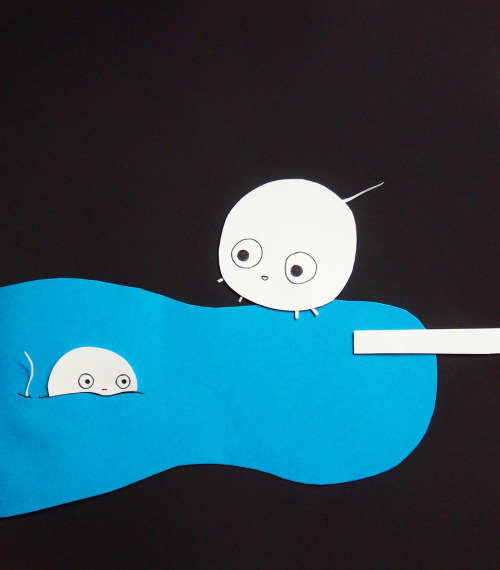
 Finally finished Sarah Vowell's Radio On: A Listener's Diary after starting, jeez, 3 months ago? I'd definitely consider it the weakest of her books. But it was her first, and was good enough to cement her writing career. So.
Finally finished Sarah Vowell's Radio On: A Listener's Diary after starting, jeez, 3 months ago? I'd definitely consider it the weakest of her books. But it was her first, and was good enough to cement her writing career. So.The idea of doing something obsessively for a year and writing about the experience isn't new (ahem). In Radio On the challenge is, you guessed it, listening to the radio, a lot, for a year. And the year is 1996. One of my favorite years! Sure, I was eleven. But I remember it crystal clear. A year dominated by the movies Clueless and The Craft, hair scrunchies, mini-backpacks and Beavis and Butthead. I'm sure some boring political things happened too. But OMG JONATHAN TAYLOR THOMAS.
Even though my brain was stuck in eleven-year-old-girl mode, there were still some "oh yeah I remember when that happened" moments in the book. Kurt Cobain's suicide. The O.J. Simpson trial. Bob Dole being Bob Dole, etc.
Even back then, radio was considered a forgotten medium. It still is -- at least in its original state. I never listen to THE radio anymore. My alarm clock used to wake me each morning with the sounds of annoying morning DJs and auto-tuned millionaires, but I put a stop to even that, now using my cell's more reliable alarm feature. And god knows I got enough of traditional radio working a summer job. For 4 summers, 2003-2006, I had a job in a factory where the work was very repetitive and solitary. The only thing to keep us sane was being able to have a radio and earphones (no tape/CDs). This was before MP3 players practically came free in boxes of Lucky Charms.
So, 8rs a day, 5 days a week, for 14 weeks I would listen to the only 2 decent radio stations I could pick up in our concrete bunker. One was a station that plays nothing but the current top hits, which would be great if you like what's popular with the kids these days. With their hippin' and their hoppin'. The other was the local NPR carrier. Which for a few minutes a day is actually interesting and bearable. Until they break out the free form jazz and I feel like Bill Cosby is behind me holding jello pudding.
Patton Oswalt sums up NPR quite well:
Update: Oh, and look, embedding the video was disabled. So here's the link: http://www.youtube.com/watch?v=6Re-OdWBCRs
But fast forward to the future and now it's all about pay radio. Or online radio. Pandora, last.fm. And I shell out $25 every month for two SiriusXM subscriptions (one's for my dad, who listens to entirely way too much doo-wop). They have a channel dedicated to film scores! Be still my heart.
I suppose you could still do the same project today: listen to satellite radio for a year. They have music, talk radio, Howard Stern, etc. But the difference would be how you document it.
What plants Vowell's book firmly in the 90s is the fact that it's an actual book, not a blog. And that's what it feels like you're reading: a printed blog. Which is why it took so long to slosh through. Imagine reading 365 days worth of archived blog postings, even from your most favorite site, in one sitting. Yeah.
So. Spread out over 3 months, I can say I really liked this book. If you're a Nirvana fan, definitely check it out. If you hate Rush Limbaugh, check it out.
Here are some snippets:
Faced with a choice of boring and dumb or boring and highbrow, which would you pick? Baywatch is the most popular television program on the same planet that turns away a million Wagner groupies per year clamoring for Bayreuth Festival tickets. "Here we are now, entertain us."
Something Rush Limbaugh said the other day has been eating at me. He was bragging about being invited to "The Big Smoke," a cigar smokers' protest in Lafayette Park across from the White House. He waxed thus:
We in our society, ladies and gentlemen, have an ever increasing bunch of ninnies who are dead set against anybody enjoying themselves. If you have a good time, somebody's going to be upset. If you have a good time doing something somebody doesn't think you should be doing, then they're going to be angry and they are going to use whatever clout, political or otherwise, they can get you do to stop it... Do you know why people smoke cigars? They like 'em!Do you know why some men have sex with other men, Rush, you homophobic reactionary? They like to!
There's talk of a return to civility in public discourse. The nice-girl part of me says fine, but sometimes, civility's overrated. After all, wasn't Chamberlain just being civil at Munich when he should have screamed, at the top of his lungs, that he couldn't even stand to sit in the same room as that incarnation of Satan? But no, he politely signed the death certificate for a goodly portion of the Western Hemisphere. And no teacups were broken and no tablecloths were stained. Only the world paid his tab later in madness and ashes, and was an ill-mannered, uncivil, impolite mess now, wasn't it?
I say fight fire with fire. Which is not to say fight stupidity with greater stupidity.









